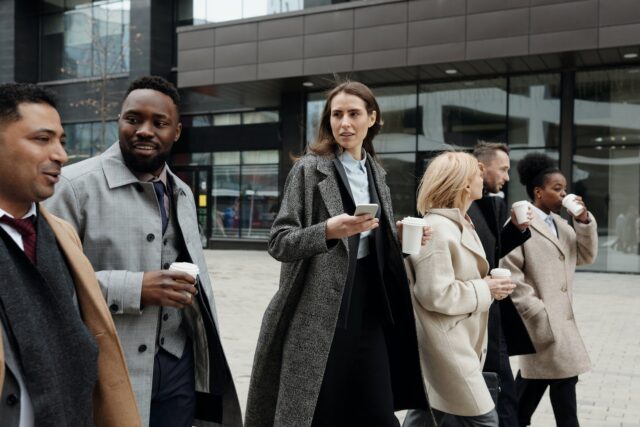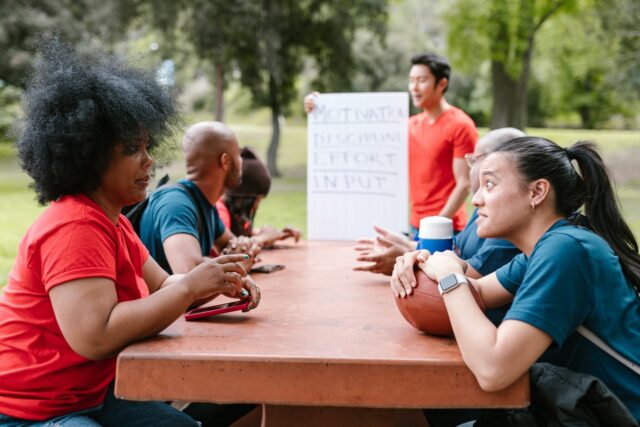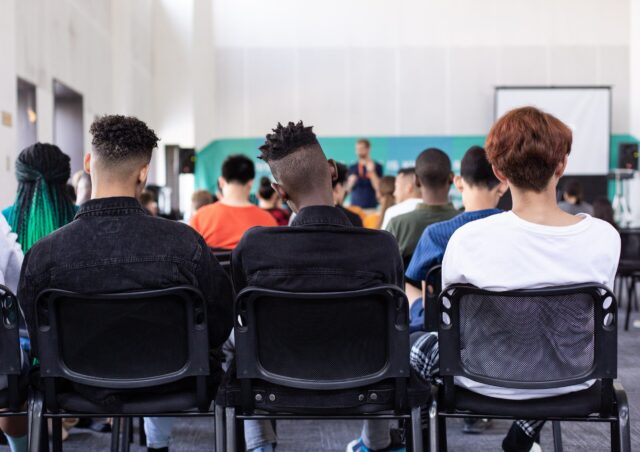Improving intercultural or interdemographic relationships is a critical endeavor for society, especially as the world has become more connected and increasingly diverse over the last century. So, how can we improve intercultural relationships? How can we begin to open our hearts to one another regardless of our socio-cultural differences, backgrounds and beliefs?
Instead of focusing on socio-cultural distinctions, focus on getting to know each individual.
Why An Individual Focus is Important
Every human system—be it a professional organization, a family unit, a circle of friends or a society—is made up of groups and subgroups that form their own particular organizational structures, beliefs, and values. These structures sometimes come into conflict or do not appear to be compatible with the structures of other groups. However, the most fundamental element of these groups are individual human beings, who each have their own unique and nuanced paradigms through which they understand the world.
Every person has novel experiences and personal histories, regardless of the groups with which they choose to identify or are placed into. Additionally, each person is actually a member of many groups with many aligning and competing beliefs and values that uniquely make up an individual’s experience, as suggested by the theory of intersectionality and the intrapersonal identity network. This means that an individual should not be viewed simply as the representative of a group. On the contrary, each person is just that—an individual person, who wants to be seen, respected, valued, and honored as an individual, in addition to or as an alternative to whatever is assumed about them based on their membership in various sociocultural groups.
It is very easy to judge, feel anger toward, or even learn to hate certain ideas or groups we perceive as promoting or living by those ideas. It is quite difficult, on the other hand, to hate an individual, unless we see that individual solely as a representative or agent of those ideas. Additionally, it is almost certain that you do not know all there is to know about what a group believes or values. A fellow peacebuilder and colleague of mine, Henry Yampolsky, said it perfectly: “Connect to your own ignorance. There is an infinite amount of information you do not know, so there will always be more to learn than what you already understand.”
So, how do we stop judging, raging, or even hating other people that we do not know based solely on the perceptions we hold about the groups they are in? It’s time to start focusing on the individual. Do your best—and I know this is difficult—to wipe the slate clean regarding anything you think you know about someone based on the group you see them as part of. Stop, even for a day or two, listening to friends, media, or members of your own group about the other group’s beliefs and values. Instead, sit and talk with someone from that group. Ask them about their life. Really listen, without any ulterior motive, without hoping to convince them of anything. Just listen. Learn. And try to understand who they are, what they have personally experienced, and what is important to them as an individual.
A vast field of research has been propagated on Contact Theory, which shows that under the right conditions, meaningful contact with people of different groups can reduce prejudice and intergroup anxiety. This is largely because participants in intergroup contact are engaged in goal-oriented activities which encourages individuals to get to know one another as people, not purely as members of a different group. In fact, recent studies have found that perceived connection and commonality with people of different ethnic or political groups can reduce hostility and promote perceived compatibility.
Similarly, if you have a negative interaction with an individual, do your best NOT to attribute their communication style or beliefs to the group(s) with which you associate them. Just as you wipe the group slate clean when getting to know the individual, wipe the individual slate clean when getting to know the group. That way, you won’t automatically presume that other individuals who appear to be part of that socio-cultural group will act or communicate in the same way.
Finding Common Ground (and Groups) With Individuals
Focusing on the individual is not a call to stop honoring, respecting, and investing in our own and one another’s remarkable cultures and social groups. On the contrary, by getting to know the individuals within each of our incredibly diverse groups all over the world, we have a much better chance of accurately understanding what those groups collectively value, believe, and desire.
You will NOT obtain a clear or legitimate understanding of a group by reading about them on social media, hearing about them through a journalist’s filter, or getting the scoop on them from your own social group. On the contrary, you will only truly get to know, understand, and connect with people in different groups by talking to individuals who make up that group, by listening to them without judgment or presumption, and by finding the nuanced pieces of their lives that you can personally relate to. Most people in most groups also have families they care about, get together with friends for dinner and activities, like to have adventures, want to be safe, live autonomously, and find happiness… Just like you.
Additionally, because we all identify with multiple groups—nationality, race, gender, age range, relationship status, income status, etc.—there is a good chance we share at least some group identity with most individuals. It may help to focus on what psychologists call these superordinate groups or shared group identities. Recent research, for instance, suggests that people of different ethnic groups, but who belong to the same nation, may establish more positive intergroup attitudes when they focus on their shared nationality.
By getting to know the individual who, to you, only previously appeared as a representative of some different group, you can begin to shape your understanding of what that person’s group is actually about. You may come to understand that the differences in that person’s background and culture are actually fascinating, touching, and worthy of open-hearted acceptance. Heck, you may even realize you’re not so different from them.
Improving Relationships In Your Own Life
My sincere hope for people I meet is that they quickly grow to trust my intention is to get to know who they are as a person, that I will put aside anything that has been said about their groups or anyone they associate with and simply try to see them for the valuable human individual they are, with a unique set of personal experiences and beliefs worthy of understanding and respect. I am not always great at this, but I am trying. My sincere hope for YOU, the individual who reads this, is that you will also do your best to build trust and find common ground with people who currently seem quite different from you.
So, if you believe…
Individuals you know, meet, or hear about are evil or ignorant based solely on the group, side, or party they appear to be in,
Then, my challenge for you is…
Get to know someone new. Maybe a few people. Or, get to re-know someone you already think you know. Don’t focus on anything you heard or think you know about their group or side or party. Instead, make it a mission to meet and talk to the individuals. Get to know each of them, if just briefly, as stand-alone human beings. Find something you can relate to about their life, some values you both share, and see if you can connect, on a heart level, with this human being, who—just like you—is complex, valuable, and quite extraordinary.
And a special assignment for leaders in organizations:
Whether you are head of a household, a company, or a social system, one of your primary jobs is to model how to interact with others productively and how such productive interactions can lead to success for the entire system—including, presumably, for the individuals who comprise it. So, if you want to improve intercultural or interracial relationships in your team or company, try this: Invite small, diverse groups of employees to lunch with you, and help lead conversations that encourage each person at the table to casually get to know one another. Try to keep it to no more than three employees at a time, and repeat these lunches as many times as necessary until you’ve at least broken bread with every employee who directly reports to you. Once you’ve gotten to know your team in small groups (and they’ve gotten to know each other), develop creative programs to bring the larger team together on a regular basis, with activities aimed at helping individuals connect with each other on an individual human level.




